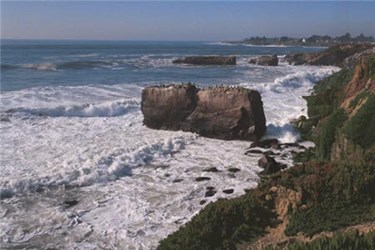Desalination Plant Derailed As Red Tape Plagues Industry Growth

By Sara Jerome,
@sarmje

A proposed seawater desalination plant in Santa Cruz, CA, faced a major setback this month after city officials decided to delay the project and cancel an upcoming vote on the issue.
The about-face came after the project underwent a public comment period. Locals indicated they are less than eager to see the project move forward, according to Mayor Hilary Bryant's office.
"The Santa Cruz community is not ready for desalination at this time and we need a reset in the ongoing conversation on water supply and desal issues," the office said.
Water policy must pivot to focus on conservation strategies and economic considerations, according to the mayor's office.
The setback bookends years of debate over the proposed plant. The city first decided to pursue desalination in 2003, according to the Santa Cruz Sentinel.
Opponents of the project have argued that conditions have changed since then, so the project should be canceled, according to the newspaper.
They say that water demand has dropped, cost estimates for the plant have risen, and awareness of energy sustainability issues has spread, making the energy-intensive desalination process look less attractive.
The situation in Santa Cruz is not unique. Desalination is on the rise due to the increasing scarcity of clean water, but regulations are a major obstacle for the growth of this industry in the U.S., according to BNA/Bloomberg.
"The technology, which is widely used in many parts of the world--the Middle East is by far the largest market--has been slower to catch on in the United States, in part, because of regulatory restrictions," BNA said.
For instance, California calls for 27 permits when a desalination plant is sited, which can take years to obtain, according to the report.
Red tape has plagued a project in Carlsbad, CA, which would create the largest desalination plant in the U.S.
Forbes reported that the project has faced 14 legal challenges "over its environmental impact, such as whether its operation would harm the marine wildlife, and lengthy regulatory processes at local and state agencies before securing the permits and financing to start construction late last year."
Nearly 20 desalination plants are in development in California, the report said, and the success of the Carlsbad plant may result in greater acceptance of desalination in the U.S.
